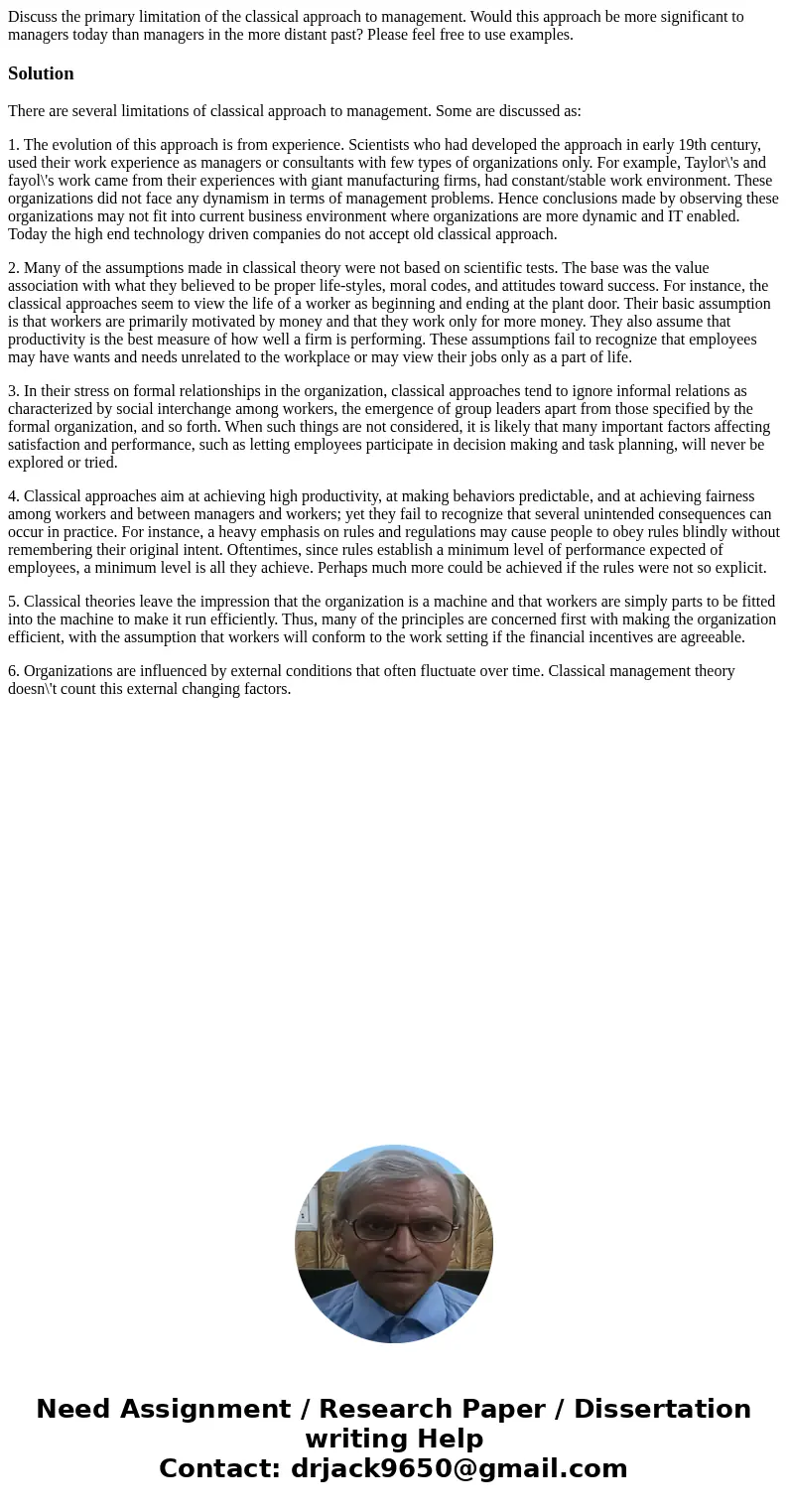Discuss the primary limitation of the classical approach to
Discuss the primary limitation of the classical approach to management. Would this approach be more significant to managers today than managers in the more distant past? Please feel free to use examples.
Solution
There are several limitations of classical approach to management. Some are discussed as:
1. The evolution of this approach is from experience. Scientists who had developed the approach in early 19th century, used their work experience as managers or consultants with few types of organizations only. For example, Taylor\'s and fayol\'s work came from their experiences with giant manufacturing firms, had constant/stable work environment. These organizations did not face any dynamism in terms of management problems. Hence conclusions made by observing these organizations may not fit into current business environment where organizations are more dynamic and IT enabled. Today the high end technology driven companies do not accept old classical approach.
2. Many of the assumptions made in classical theory were not based on scientific tests. The base was the value association with what they believed to be proper life-styles, moral codes, and attitudes toward success. For instance, the classical approaches seem to view the life of a worker as beginning and ending at the plant door. Their basic assumption is that workers are primarily motivated by money and that they work only for more money. They also assume that productivity is the best measure of how well a firm is performing. These assumptions fail to recognize that employees may have wants and needs unrelated to the workplace or may view their jobs only as a part of life.
3. In their stress on formal relationships in the organization, classical approaches tend to ignore informal relations as characterized by social interchange among workers, the emergence of group leaders apart from those specified by the formal organization, and so forth. When such things are not considered, it is likely that many important factors affecting satisfaction and performance, such as letting employees participate in decision making and task planning, will never be explored or tried.
4. Classical approaches aim at achieving high productivity, at making behaviors predictable, and at achieving fairness among workers and between managers and workers; yet they fail to recognize that several unintended consequences can occur in practice. For instance, a heavy emphasis on rules and regulations may cause people to obey rules blindly without remembering their original intent. Oftentimes, since rules establish a minimum level of performance expected of employees, a minimum level is all they achieve. Perhaps much more could be achieved if the rules were not so explicit.
5. Classical theories leave the impression that the organization is a machine and that workers are simply parts to be fitted into the machine to make it run efficiently. Thus, many of the principles are concerned first with making the organization efficient, with the assumption that workers will conform to the work setting if the financial incentives are agreeable.
6. Organizations are influenced by external conditions that often fluctuate over time. Classical management theory doesn\'t count this external changing factors.

 Homework Sourse
Homework Sourse